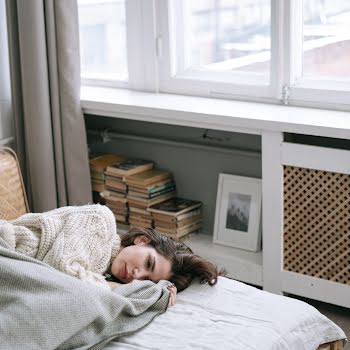
Study reveals there are 3 types of ‘pandemic personalities’ during lockdown. Which are you?
By Jennifer McShane
24th Oct 2020
24th Oct 2020
A UK study suggests that we all fall into three categories when it comes to dealing with the pandemic
There’s no one-size-fits-all approach when it comes to dealing with the drastic changes in our day-to-day as a result of Covid-19. Maybe you bake banana bread, learn a new hobby, sleep more or just try to take it as it comes – there’s no ‘right’ way to deal with a pandemic in this new world, temporary though it is.
Be that as it may, recent analysis from Kings College London has revealed that there are three different types of lockdown response: accepting, suffering or resisting.
It does seem to explain the array of varying mood that we’ve become susceptible to on any given day. The analysis, based on an Ipsos MORI survey conducted in early April, reveals that the UK is made up of “three broad but distinct groups of people” who are responding to the lockdown and coronavirus pandemic in different ways.
“The Accepters”
The poll suggests 48% of the UK population belong to “The Accepting” group, those aged 55 to 75 are the most likely to be in the group who accept the lockdown and adjust to a new way of life. In fact, they are unlikely to feel more anxious or depressed than usual, while just 12 per cent find their sleep has been affected and few are arguing more with the rest of the family.
People in this group are also least likely to check social media for coronavirus updates on a daily basis, and a massive 91% support lockdown measures. However, what’s important about this particular group is that only 28% of these groups say they’re certain, very or fairly likely to face financial difficulties as a result of the lockdown – the lowest percentage of the groups – so it might explain why they aren’t overly worried to the point where sleep is affected.
“The Sufferers”
The portion of the population finding lockdown most taxing on their mental health, known as “The Sufferers” accounts for 44% of the population – with women making up two-thirds of this type. This is a striking figure but as we know so much falls on women from childcare to working, homeschooling and cooking, cleaning (being that they are largely primary caregivers, despite support from a partner), it doesn’t come as too much of a surprise.
Almost all people in this group – 93% – have felt more anxious and depressed since lockdown began, and 64% of these people have also slept less or worse than usual. Also, 24% say they think about coronavirus all the time with 64% of the people who are really struggling with lockdown saying they check social media for updates on coronavirus daily or more than that.
“The Resisters”
One in ten make up the final group; those resisting the new way of life. This group, involving a large number of 16 to 24-year-olds, are more likely to be flouting lockdown rules, with 58 per cent believing ‘too much fuss is being made’ about the risk of the virus, and that they can largely blame the UK government for that response.
However, the reason for the urge to return to normality for this particular group could be down to the fact that 65% of this group expect there will be a significant personal financial impact felt from the crisis.
Despite any of the groups or which you might relate to more, what is clear is that there’s only one thing that matters at the moment and it’s that we get through this, one day at a time.
Main photograph: Unsplash
Read more: Opinion: ‘This pandemic has left an entire generation stuck in limbo’
Read more: Expert View: Will the pandemic change Irish restaurants forever?
Read more: I left Dublin for Kerry at the start of the pandemic — and I’ve never been happier























